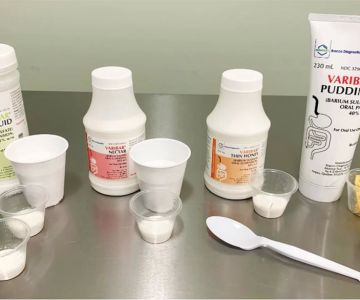Why Checking an Oral Surgeon’s Record Is Important
When it comes to oral surgery, trusting your surgeon is paramount. You might ask, “How do I check an oral surgeon’s record?” This question is vital because oral surgeons perform complex procedures that require expertise, precision, and ethical practice. A thorough background check can give you peace of mind about your surgeon’s qualifications, experience, and professional conduct.
Oral surgeons handle procedures like wisdom teeth removal, jaw reconstruction, dental implants, and treatment of facial trauma. Mistakes or malpractice in these areas can have serious consequences. Therefore, verifying the surgeon’s history helps protect your health and investment.
1. Verify Oral Surgeon Credentials and Licensing
The first step to check an oral surgeon’s record is to confirm their credentials. In the US, oral surgeons must graduate from an accredited dental school and complete additional years of residency in oral and maxillofacial surgery. After training, they must pass rigorous exams to become board-certified.
You can verify a surgeon’s license through your state’s dental or medical board website. These databases provide details such as license status, expiration dates, and any disciplinary actions. This official verification ensures your surgeon meets the required professional standards.
Additionally, checking if the surgeon is a member of professional organizations, such as the American Association of Oral and Maxillofacial Surgeons (AAOMS), can signal a commitment to continuing education and ethical practice.
2. Investigate Malpractice and Disciplinary History
A critical part of an oral surgeon’s record involves malpractice claims and disciplinary actions. These records indicate whether the surgeon has faced lawsuits or complaints related to negligence or unethical behavior.
To access this information, you can check public records on state medical boards, court databases, or use third-party services specializing in professional background checks. Understanding any malpractice history allows you to evaluate the risk involved in choosing a particular surgeon.
Keep in mind that not all malpractice claims indicate poor practice; some may be settled without fault. However, a pattern of claims or serious disciplinary actions should be a warning sign.
3. Review Patient Feedback and Online Ratings
While official records provide a factual basis, patient reviews offer insights into the surgeon’s bedside manner, communication skills, and overall patient satisfaction. Websites such as Healthgrades, Vitals, or Google Reviews feature patient testimonials and ratings.
Reading multiple reviews helps build a balanced view. For example, consistent praise about professionalism and post-operative care is a good indicator, whereas recurring complaints about pain management or staff attitude may suggest issues.
Stories shared by patients can also highlight real-life experiences, adding authenticity to your assessment.
4. Understand the Surgeon’s Experience and Specializations
Oral surgery is a broad field, and some surgeons specialize in areas like cosmetic surgery, reconstructive surgery, or trauma care. Knowing the surgeon’s specific expertise helps ensure your needs are met.
Ask about the number of procedures they perform annually, their success rates, and training related to your treatment. Surgeons with extensive experience in your required procedure typically deliver better outcomes.
Some surgeons publish case studies or participate in research, which can be a mark of advanced knowledge and commitment to the field.
5. Consult Your Primary Dentist or Healthcare Provider
Primary care dentists or healthcare providers often have professional networks and can recommend trusted oral surgeons. They might also provide feedback about the surgeon’s reputation and previous patient outcomes.
Getting a referral from someone familiar with your dental history can streamline the selection process and add a layer of trust.
6. Questions to Ask During Your Initial Consultation
Once you shortlist oral surgeons, a personal consultation is essential. Use this opportunity to ask questions about their record, including:
- Details about their training and board certification
- Experience with your specific procedure
- How they handle complications
- Patient outcomes and follow-up care
- Any past malpractice claims or disciplinary actions
Transparent surgeons will willingly share this information, helping you make an informed decision.
Real-Life Example: Choosing a Trustworthy Oral Surgeon
Consider Jane’s experience: she needed complex jaw surgery and was worried about finding a reliable surgeon. By researching the surgeon’s license through her state dental board and reading patient reviews, she confirmed the surgeon’s excellent reputation and clean professional record. Jane also asked her primary dentist for a referral. This thorough vetting gave her confidence going into surgery, which went smoothly with excellent results.
Final Advice on Checking an Oral Surgeon’s Record
Understanding “how do I check an oral surgeon’s record” involves multiple steps: verifying credentials, reviewing malpractice history, assessing patient feedback, and consulting trusted professionals. Taking these measures protects your health and ensures quality care.
If you want expert recommendations and services for oral surgery, consider visiting Dentistry Toothtruth, where you can find reliable providers and resources tailored to your needs.







 Baldwin Park Family Dentistry4.0 (16 review)
Baldwin Park Family Dentistry4.0 (16 review) Sims Dentistry of Louisville4.0 (192 review)
Sims Dentistry of Louisville4.0 (192 review) Ridge Periodontics & Dental Implants3.0 (12 review)
Ridge Periodontics & Dental Implants3.0 (12 review) Jared Berger DMD3.0 (4 review)
Jared Berger DMD3.0 (4 review) David C. Li DDS4.0 (154 review)
David C. Li DDS4.0 (154 review) Blaine Kidds Pediatric Dentistry4.0 (410 review)
Blaine Kidds Pediatric Dentistry4.0 (410 review) The Importance of Oral Health Education During Pregnancy for a Healthy Pregnancy
The Importance of Oral Health Education During Pregnancy for a Healthy Pregnancy Best Tips for Brushing Your Teeth Properly for Healthy Gums: Essential Techniques for Oral Health
Best Tips for Brushing Your Teeth Properly for Healthy Gums: Essential Techniques for Oral Health Why Skipping Dental Checkups Can Lead to Bigger Oral Health Problems
Why Skipping Dental Checkups Can Lead to Bigger Oral Health Problems Advantages of Porcelain Dental Restorations
Advantages of Porcelain Dental Restorations How Can Diabetes Cause Tooth and Gum Problems? Preventing and Managing Oral Health Issues
How Can Diabetes Cause Tooth and Gum Problems? Preventing and Managing Oral Health Issues Healthy Habits for Promoting Good Oral Health and Hygiene: Tips for a Healthy Smile
Healthy Habits for Promoting Good Oral Health and Hygiene: Tips for a Healthy Smile